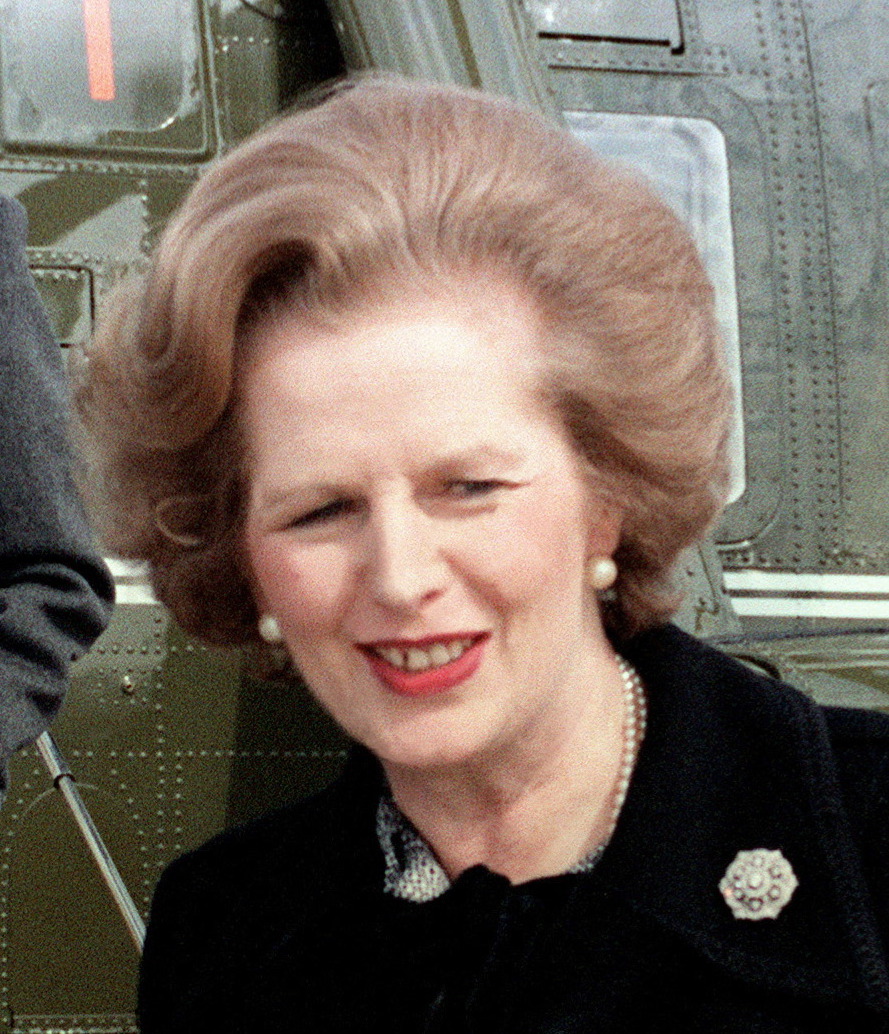By Richard Toye
The death of Margaret Thatcher has already prompted an outpouring of reflections upon her place in history. One aspect of her legacy that deserves attention is her use of rhetoric and the way in which, to a great degree, she helped reshape the language of British politics as well as the substance of policy. Historians divide about when original Thatcherism really was. Certainly, Thatcher’s brand of low tax, anti-union, pro-middle class politics had antecedents in the 1950s if not earlier. Yet, if her economic ideas were borrowed from others, her discursive style contained elements that were radically new.

It was not that aggressive political language was unprecedented in Britain, of course. At the 1945 election, Thatcher’s political hero Winston Churchill alleged that if a Labour government were elected it would have to fall back on ‘some form of Gestapo’ – a taunt which itself owed something to his continued use of the rough-and-tumble style of the Edwardian era. And there were other post-war Conservatives, such as Quintin Hogg and Enoch Powell, whose rhetoric was in some ways more outrageous than Thatcher’s own. What was new about her, though, was her ability not merely to bring what she called ‘conviction politics’ into the mainstream but to make it all but hegemonic as an ideal of political conduct.
To understand this, we need to appreciate what she was reacting against. Again, historians differ about whether there really was a ‘post-war consensus’, whereby the leaders of the main parties reached broad agreement on the desirability of Keynesian economic management and a moderately generous welfare state. What is clear, though, is that by the late 1960s there were an increasing number of voices claiming that such a consensus did exist, and that it was an elite stitch-up aimed at marginalising dissent and suppressing the unarticulated common sense desires of the mass of the British people. As Conservative Party leader after 1975 Thatcher successfully posed as the radical spokeswoman of ordinary Britons against the cosy arrangements of the small-‘c’ conservative Establishment, which in her view encompassed everything from trades union leaders to the hierarchy of the Church of England.
Furthermore, it wasn’t just the content of the consensus to which she objected; that is to say, she did not just think that the politicians of the post-war years happened to have arrived at a mistaken set of policies. Rather, she believed that it was their very manner of conducting politics – the quest for agreement and the aspiration to avoid strife – that had inevitably led to bad outcomes. As Thatcher put it shortly before she entered Downing Street, ‘The Old Testament prophets didn’t go out into the highways saying, ‘Brothers, I want consensus.’ They said, ‘This is my faith and my vision! This is what I passionately believe!’ Searching for areas of agreement with one’s opponents, then, was something she found inherently suspect.

This was not the whole story, of course. Once in office she could not do away wholly with the need for compromise, policy reversals, or downright electoral caution. However, the myth of the ‘iron lady’, which the media helped perpetuate, gave her substantial political cover for any such deviations from the true path of ideological grace. It was only when she began to completely believe the myth herself that she came unstuck, gradually dispensing with ministers who were willing to challenge her, and seemingly starting to value her own inflexibility as an inherent political virtue. Cue the disaster of the Poll Tax, battles over Europe, and her eventual exit from power.
Plainly, the effects of the Thatcher years have been long-lasting, and today’s debates about welfare and austerity are conducted very much in her shadow. Her idealisation of unyieldingness (or, if you prefer, obstinacy) as form of political conduct has been of equal importance. Tony Blair was borrowing from her playbook when he boasted that he did not have a reverse gear – a fairly significant defect, one might think, in any kind of vehicle. But perhaps her most powerful trope was her populism. Her ‘conviction’ rhetoric served as token of her alleged difference from other, more conventional politicians. This language served her very well electorally, but at the same time it served to devalue the inevitable, and arguably desirable, compromises of the ordinary political process.
Today, then, Thatcher’s economic views command considerable support across the political mainstream: the market is king. Yet the politicians who preach this post-Thatcherite consensus are themselves the object of popular hostility. They are now being attacked from the right, with UKIP gaining success by painting them as out of touch with the common people – the same trick that helped bring the Tories victory in 1979. RIP Maggie Thatcher; Long Live Nigel Farage.
Richard Toye studied at the University of Birmingham and subsequently the University of Cambridge, where he completed his Ph.D. He is currently Professor of Modern History at the University of Exeter. His books include Rhetoric: A Very Short Introduction (2013), Lloyd George and Churchill: Rivals for Greatness (2007) and Churchill’s Empire: The World That Made Him and the World He Made (2010).
The Very Short Introductions (VSI) series combines a small format with authoritative analysis and big ideas for hundreds of topic areas. Written by our expert authors, these books can change the way you think about the things that interest you and are the perfect introduction to subjects you previously knew nothing about. Grow your knowledge with OUPblog and the VSI series every Friday and like Very Short Introductions on Facebook.
Image credits: Margaret Thatcher By Williams [Public domain], via Wikimedia Commons; President Reagan and Prime Minister Margaret Thatcher at Camp David 1986. As a work of the U.S. federal government, the image is in the public domain via Wikimedia Commons.


Recent Comments
There are currently no comments.